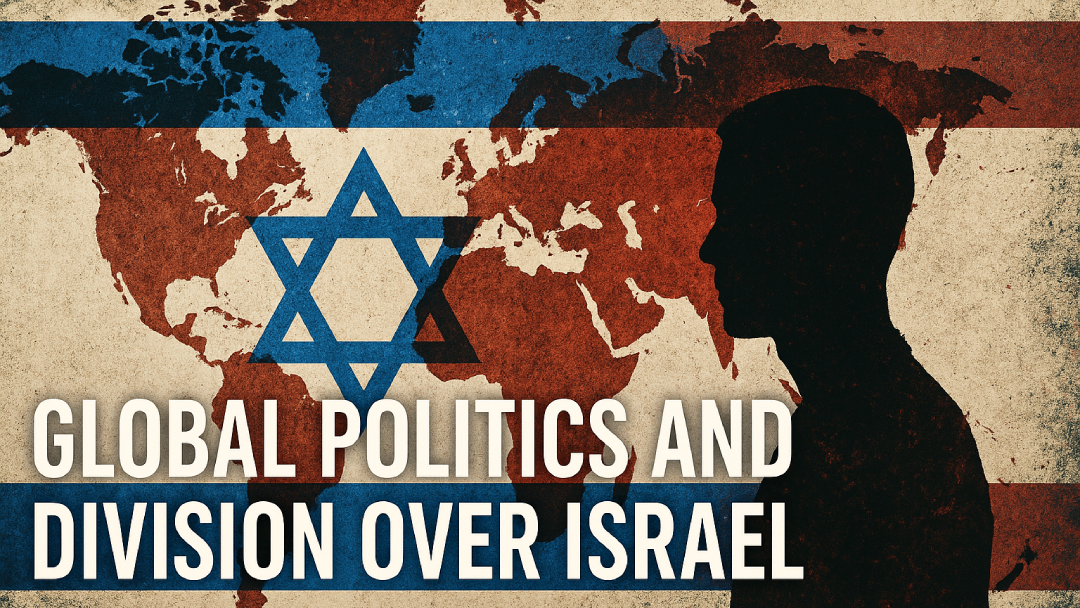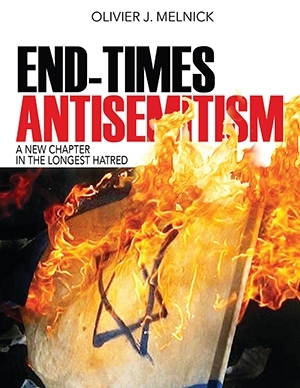Global politics, media bias, and propaganda fuel division over Israel
The global landscape is shifting at a pace that feels almost impossible to track. From the United Nations to social media timelines, coordinated narratives are reshaping public opinion about Israel, the Middle East, and the very definition of truth. What’s unfolding is more than a political dispute—it’s a clash of civilizations, a campaign of misinformation, and a spiritual test that is dividing nations, communities, and churches.
The UN’s “Irreversible” Push for a Palestinian State
Several Western nations—including France, the UK, and Canada—are pushing to recognize a Palestinian state at the United Nations. The language used in their joint declarations is telling: terms like “time-bound”, “concrete”, and “irreversible” are chosen to shut down debate before it can begin.
The vision presented is of an “independent, sovereign, economically viable, and democratic State of Palestine” living “in peace and security with Israel.” In reality, the Palestinian Authority’s leadership has clung to power far beyond any democratic mandate, and Gaza’s rulers have turned greenhouses into rubble and synagogues into targets. The gap between the rhetoric and the record is striking.
Domestic politics play a role as well. In parts of Europe, rising migrant populations have changed political priorities, driving leaders to appease certain constituencies while projecting moral leadership on the world stage.
How Media Shapes Perception
Modern propaganda is swift and shameless. Misleading images of sick children have been circulated as evidence of mass starvation in Gaza, with minimal fact-checking. Retractions—when they come at all—are buried and reach only a fraction of the original audience. Meanwhile, images of emaciated Israeli hostages, resembling Holocaust victims, receive scant mainstream coverage.
The pattern is clear: emotionally charged visuals that fit an anti-Israel narrative are fast-tracked, while inconvenient truths are delayed, diminished, or ignored altogether. Even the language is weaponized—“hostages” are recast as “prisoners,” and stockpiled aid goes unmentioned.
A Civilizational Divide
What’s emerging is not just a regional dispute, but a civilizational fault line. As blocs of nations coordinate “irreversible” outcomes, Western cities see mass demonstrations calling for Israel’s eradication. The alignment of political forces, street movements, and media narratives suggests a deeper and more durable divide than most are prepared to admit.
The Church Under Pressure
Support for Israel, once a given in many Christian circles, is eroding—especially among younger generations. Replacement Theology has re-entered mainstream conversation, and historical literacy is thinning. This issue is becoming one of the most divisive within global Christianity, and the divide is widening.
Alternative Media’s Double-Edged Sword
While many turn to independent media to escape corporate bias, some high-profile platforms have begun amplifying openly antisemitic voices and conspiracy theories. Claims that Israel controls U.S. defense spending or orchestrated historic assassinations circulate widely without challenge. Popularity and virality are not the same as truth, and the credibility of “alternative” voices is increasingly uneven.
A Call for Discernment and Resolve
In the midst of this information war, certain steps are essential:
- Read the Bible carefully. Biblical prophecy offers a framework for interpreting world events and making decisions grounded in truth.
- Know the history. Understand the legal and historical foundations of Israel’s existence, from the League of Nations onward.
- Expect a cost. Support for Israel may carry social, professional, and even personal risks.
- Question the emotional hook. Propaganda often bypasses reason by appealing directly to the heart. Pause and verify.
- Prepare. Spiritually, mentally, and practically—be ready to stand when the pressure comes.
The Ultimate Division
Beyond geopolitics lies a more urgent separation: the divide between humanity and God. Sin creates this divide, and reconciliation comes only through faith in Jesus, whose death and resurrection bridge the gap. That invitation is open to all, regardless of political stance.
Holding the Line
The campaign against Israel is gaining ground, and the propaganda is working. Yet the truth remains, and those committed to it still have the freedom to speak, teach, and stand. This requires courage, clarity, and a willingness to face opposition.
The battle is not just for land or policy—it’s for the narrative, the moral framework, and the spiritual allegiance of entire populations. The scheme may be in full motion, but truth, unlike political declarations, is unshakable and eternal.



